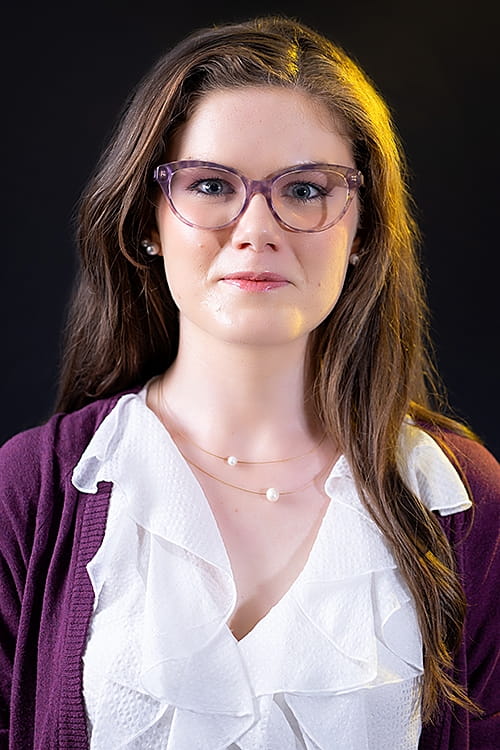
Tabitha Kay Peter, PhD student, biostatistics
Tells stories through biostatistics
“I am nominating Tabitha because I believe her work showcases the kind of research we are striving towards as an institution: work that is multidisciplinary and collaborative, work that puts pure theory into complicated practice, and work that is both a computer program and a story.” -Xian Jin Xie, professor, preventive and community dentistry
Hometown: Hendersonville, Tennessee
Faculty mentors: Xian Jin Xie, PhD, professor, preventive and community dentistry, associate dean for research, College of Dentistry; and Patrick Breheny, PhD, associate professor, biostatistics, College of Public Health
Degree program and expected graduation date: Biostatistics PhD – expected to graduate in May 2024.
Please describe your research: For my dissertation, I am studying families and how genetic markers impact physical traits for people in those families. Currently, I am writing code for a computing tool that can analyze relationships between lots of genetic markers and a physical trait. A specific application of this tool will be to a data set that describes families that have been impacted by cleft lip/cleft palate, one of the most common birth defects. In my graduate research position at the College of Dentistry, I am collaborating with a multidisciplinary team to study how the bacteria living in the mouth change when a patient develops oral cancer.
In simple terms, why does this research matter? From a broad view perspective, my dissertation research is purposeful because it will contribute towards decreasing the burden of human suffering for families impacted by cleft lip/cleft palate. Improving the tools we use to study relationships between genetic markers and birth defects is a step towards understanding the factors that increase (or decrease) the risk of those defects. Collaborating in oral cancer research has significance because both doctors and patients need better methods for diagnosing that disease. Understanding how bacteria are impacted by cancer in the mouth could lead towards less invasive and less expensive diagnostic tests for patients.
How soon after starting at the University of Iowa were you able to participate in research? I started working in research at the dental college during the same semester that I started classes (Fall 2019). I am grateful that research has always been a part of my life in Iowa City.
How has being involved in research made you more successful at the University of Iowa? Being involved in research has given me the opportunity to apply what I am learning in my courses to real data.
What are your career goals and/or plans after graduation? I am interested in pursuing a career in statistical genetics.
Banner location: not on display—
